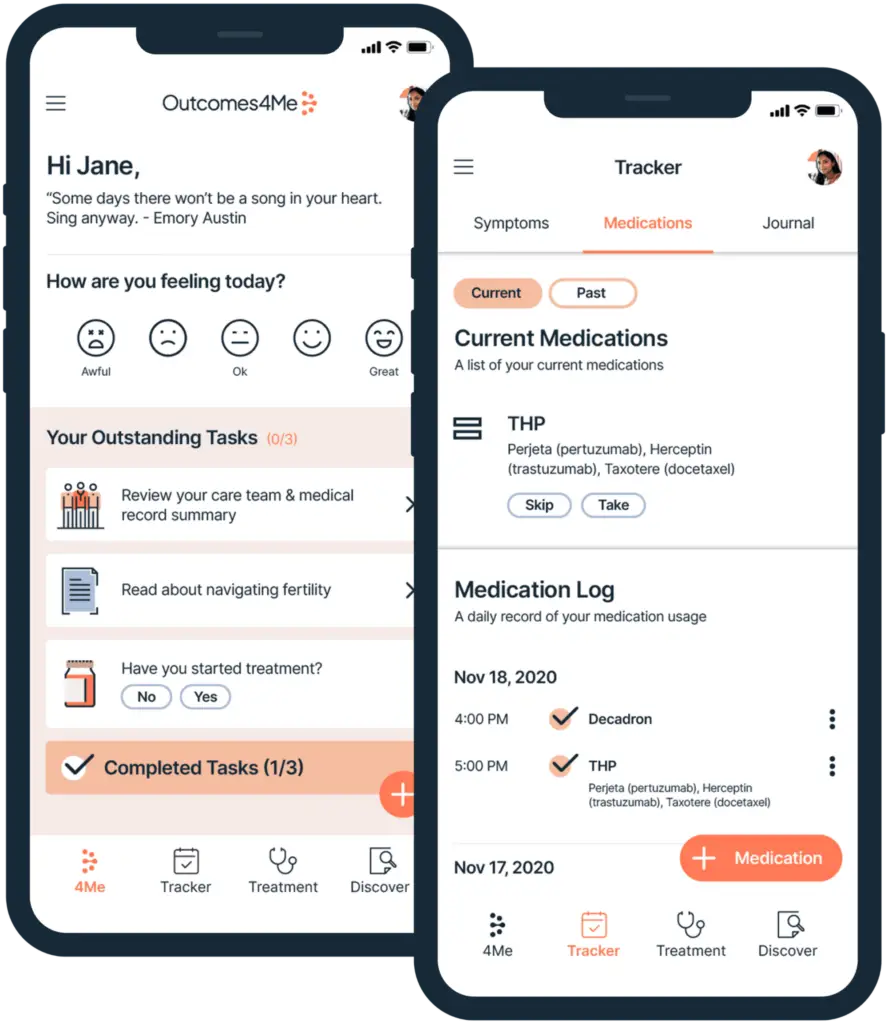As shocking as a breast cancer diagnosis is for the patient both physically and emotionally, it can be equally emotionally difficult for those who love us. And, for friends or family members who aren’t fulfilling a caretaking role, they can feel helpless. They want to do or say something–anything that will make us feel better or let us know they care. I’ve compiled some thoughts on how to support someone with breast cancer based upon my own experience with diagnosis, treatment, and survivorship.
How can loved ones provide support to someone diagnosed with breast cancer?
- Don’t be afraid to have the tough discussions
The most meaningful conversations that I had when I was first diagnosed were with friends who weren’t afraid to let me be sad and scared. They listened to my concerns and didn’t try to steer me away from them–they understood and supported the emotional state I was in. They made it OK for me to be raw, real, and honest and they allowed me to say, “I’m scared that I might not be able to see my four-year-old daughter grow up. That terrifies me.” I had one friend who said, “Let’s talk about it. If the worst-case scenario was the reality, what would bring you comfort?” - Be a safe space to discuss their fearsAnother friend’s mom was a hospice nurse; this friend spent a night with me exploring all of our fears and questions about death and dying. We talked about our real feelings about what death might be like–and our end-of-life wishes. I talked to my closest friend about, if I wasn’t there with my daughter on her 16th birthday, not only what I wanted my friend to convey to my daughter on that day, but also the experiences I hoped my friend would share with my daughter in my absence. I feel very lucky to now be in survivorship, and that I’m able to support others as a patient advocate. I will always be real with patients who are navigating early or active treatment. Cancer is very hard and we can’t only focus on hope; remaining positive is important, but we can’t ignore the very real and big feelings that accompany such a difficult period in someone’s life.
- Avoid “toxic positivity”This is when the people around a cancer patient can’t come to terms with the potentially dire outcomes of the patient’s disease, and they try to focus on positive, hopeful data only. The societal and marketing focus around survival rates improving so significantly can make conversations with friends or family challenging–and that’s because there’s such variation in terms of survival rates and stages of breast cancer. But, instead of saying, “It will be OK!” loved ones supporting a newly diagnosed breast cancer patient should try to be “OK” with the fear a breast cancer patient is experiencing.
Most importantly, remember that the patient is still the person you know and love. The cancer experience has undoubtedly changed them, but they’re still them. Spending time with those who knew us at our best and can look forward to sharing in positive, new experiences in the future can be a form of treatment in and of itself to support someone with breast cancer.
Visit the Journal feature in our app to privately capture your feelings about your diagnosis and what you have gratitude for in your life.





